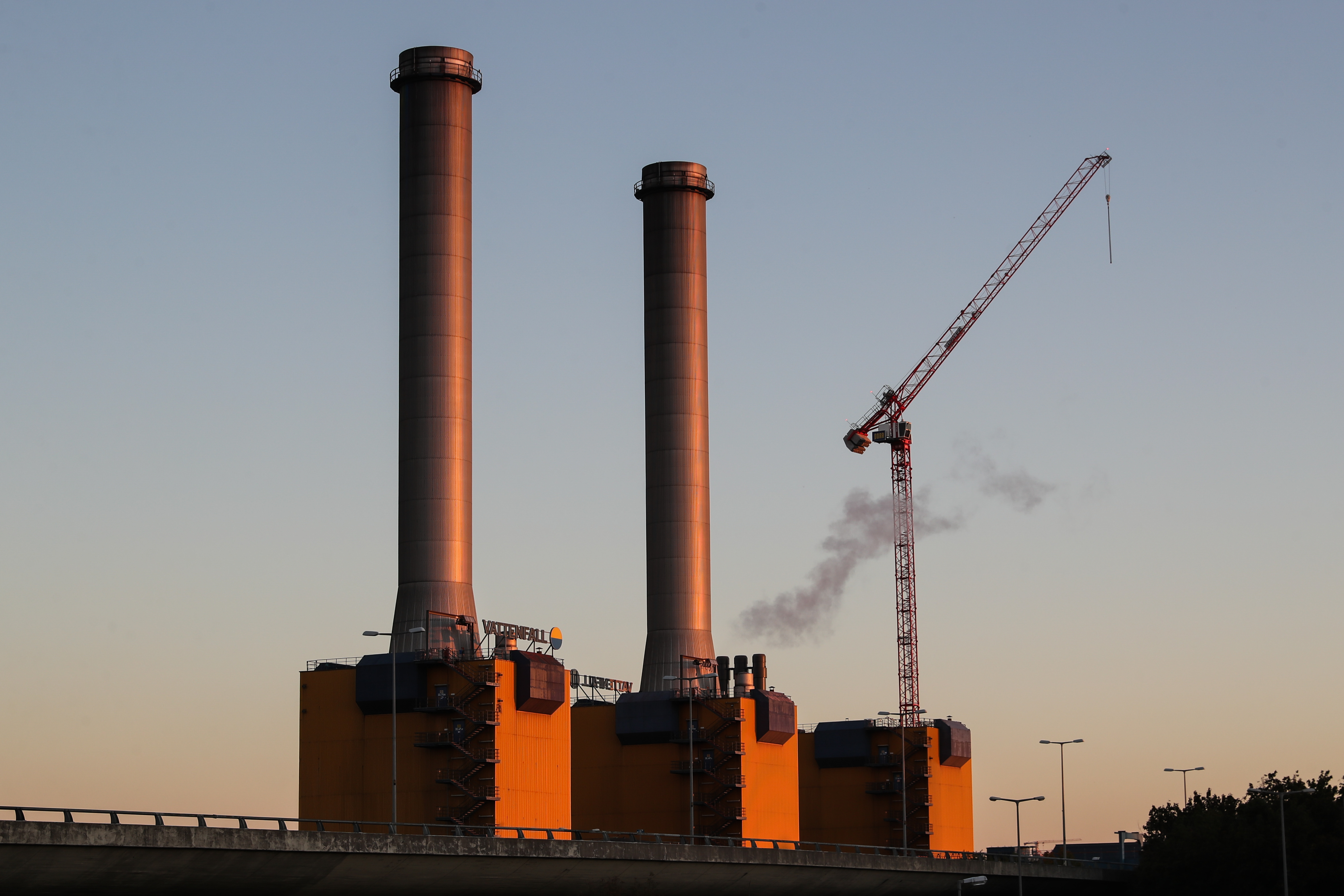Europe's natural gas crisis looms amid soaring prices
 0 Comment(s)
0 Comment(s) Print
Print E-mail Xinhua, October 12, 2021
E-mail Xinhua, October 12, 2021

Natural gas prices in Europe have pulled back from their record highs since Russian President Vladimir Putin promised to pump more gas to Europe.
After hitting a record high of 114.2 euros ($132.3) on Thursday, the spot price of natural gas at the Dutch Title Transfer Facility, a European benchmark, dropped to 87.15 euros per megawatt hour on Sunday.
With the heating season setting in and natural gas prices still hovering at high levels, the looming energy crisis is poised to elevate household utility bills and derail Europe's economic recovery.
Skyrocketing gas prices
Natural gas spot prices in Europe started to rise precipitously from May, and have undergone drastic fluctuation since mid-September, according to Dutch Title Transfer Facility historical data. The figures whipsawed and reached new highs before retreating from Thursday's all-time high.
Based on the Sunday price, the spot price is still over five times the level from the beginning of this year.
The skyrocketing prices will not only inevitably lead to huge utility bills for households, but also put great pressure on energy-intensive manufacturers.
Some European companies are already feeling the heat. In late September, Germany's leading chemical company BASF decided to curtail ammonia production in its factories in the Belgian city of Antwerp and the German city of Ludwigshafen, citing rising natural gas prices in the region.
Thorny issue
As more countries emerge from pandemic lockdowns and restrictions, demand for commodities and services has been rising. Efforts by manufacturers to meet pent-up needs from customers eventually drove up the global demand for energy, as well as their prices.
Though energy price spikes impact the entire world, surging gas prices have become a thorny issue for Europe.
In the fight against climate change, the European Union is undergoing a transformation for achieving carbon neutrality by 2050, with the target written into the European Climate Law. European countries are racing to phase out coal and embrace green energy sources like solar and wind power.
The situation highlighted the role of natural gas, which is a relatively clean burning fuel, frequently seen as a bridge from traditional energy to clean energy.
According to Bruegel, a Brussels-based think tank, higher gas prices "are putting disproportionate upward pressure on electricity prices," although natural gas only accounts for 20% of Europe's electricity.
The current pressure caused by soaring gas prices, some critics argue, could imperil Europe's climate goals if member states are forced to supplant natural gas with coal.
No easy fix
At a Eurogroup meeting held in Luxemburg earlier this month, the hike in gas prices was among the topics discussed by EU finance ministers, with some of them calling for a unified response to the continent's energy challenges, and others warning against overreaction.
On Wednesday, European Commission President Ursula von der Leyen stressed that the EU should invest in renewables for the long term, while conceding that energy prices remain a serious issue.
The ballooning prices were partly due to a short supply, she said, adding that Russia has not been helpful in stepping up supplies like Norway. Around 90% of the natural gas consumed in Europe is imported and Russia is one of the main suppliers.
Some European countries are seeking to alleviate the mounting pressures incurred by surging gas prices by cutting taxes. The French government announced on Sept. 30 that it would freeze gas prices and cut taxes on electricity in a bid to slow down the rise in prices.
While the tax cuts and rebates can protect vulnerable households and small businesses for the time being, the only way to fix the energy crisis in Europe is to promote energy conservation, a Bruegel note said.
The European Commission chief's complaint is shared by some critics in Europe, who claim that Russia is intentionally cutting natural gas supplies to Europe to expedite the approval of its Nord Stream 2 pipeline, an allegation rebutted by Russia.
The Nord Stream 2 pipeline is a gas pipeline program running from Russia to Germany across the Baltic Sea. The pipeline, long opposed by the United States, was finished last month and can double natural gas supplies to its destination.






Go to Forum >>0 Comment(s)